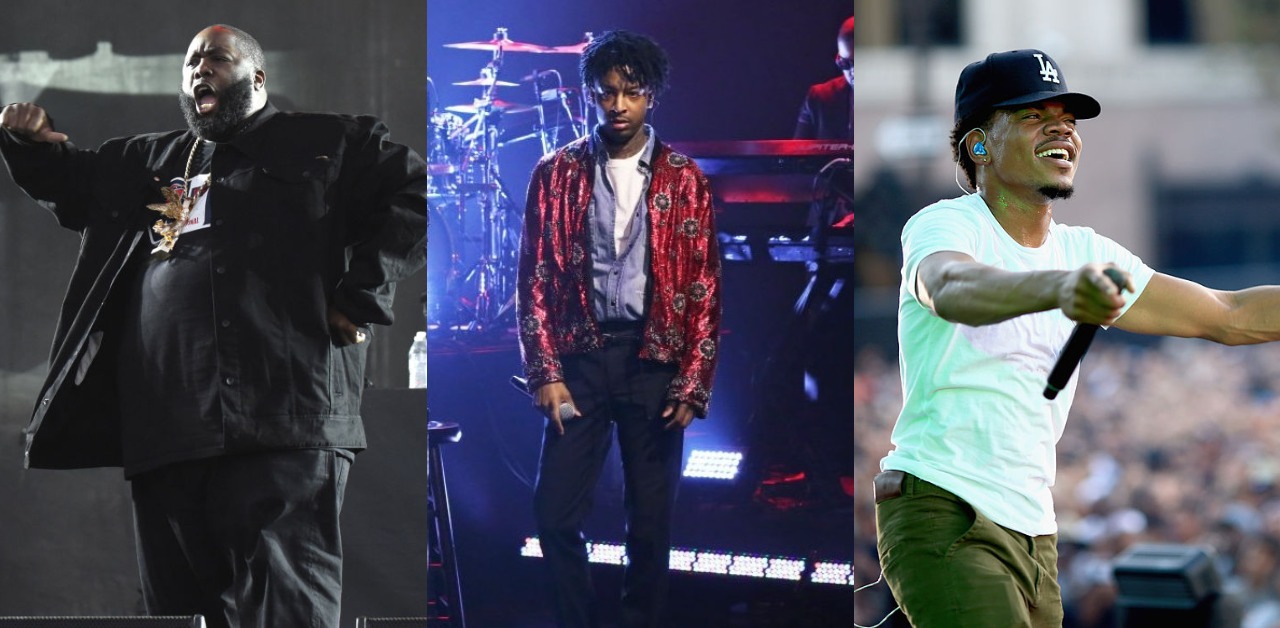Several hip-hop artists filed an amicus brief on Wednesday with the U.S. Supreme Court that provides an overview of hip-hop.
The New York Times reports Meek Mill, Chance the Rapper, 21 Savage, Killer Mike, Yo Gotti and Fat Joe submitted the document on behalf of Philadelphia rapper Jamal Knox (also known as Mayhem Mal), who is set to appear before the court.
Knox was convicted in 2014 for making terroristic threats and intimidating witnesses. Knox, 19 years old at the time, served two years for the offense.
The charges Knox faced in 2014 were brought based on lyrics from a song the rapper wrote after being arrested in 2012 on drug charges.
According to Vulture, Knox recorded the song to express his frustration with policing in America and structured it to pay tribute to the N.W.A. classic "F**k The Police." The lyrics included phrases like, “[L]et’s kill these cops ’cause they don’t do us no good." Knox also names two of his arresting officers on the track, both of whom were preparing to testify against him on the stand.
The officers stated they felt threatened by the track, and one claimed it was the reason he decided to leave the police force.
Knox's appeal made it to the Pennsylvania Supreme Court, which upheld the rapper's original sentence based on a transcript of the song's lyrics. In his decision, the court's chief justice wrote, “The song’s lyrics express hatred toward the Pittsburgh police. As well, they contain descriptions of killing police informants and police officers.”
In their amicus brief, Knox's lawyers, along with the six rappers, insist musical lyrics cannot be taken literally.
To make their case, the rappers outline "the origins, rise, and influence of hip-hop and rap music," and include a petition that "presents an important question as to the appropriate standard to judge whether artistic expressions are true threats."
“A person unfamiliar with what today is the nation’s most dominant musical genre or one who hears music through the auditory lens of older genres such as jazz, country or symphony may mistakenly interpret a rap song as a true threat of violence,” the brief reads.
The brief provides multiple examples, including an excerpt from Ice-T's memoir in which he explains his song "Cop Killer" by writing, “If you believe that I’m a cop killer, you believe David Bowie is an astronaut.”
As The Times notes, the case is not without precedent. The First Amendment defense Knox and his team plan to use with the court cleared a draft dodger who threatened to shoot the president if he were drafted in the 1960s and settled a 2003 case about cross burning.
The current interpretation of the law allows freedom of expression and requires intent be taken into account; it does not, however, allow for "true threats" to be issued, meaning justices will likely have to decide whether Knox planned to hurt the officers.
You can read the artist's submission to the Supreme Court in full here.
Now, check these out:
Chance The Rapper's Story Of How He Met His Fiancée Will Warm Even The Most Savage Of Hearts
A Group Of Artists Are Coming Together To Restore Nina Simone's Childhood Home This Spring
R. Kelly Being Accused Of Molesting 13-Year-Old Girl In Detroit And Later Giving Her Herpes

